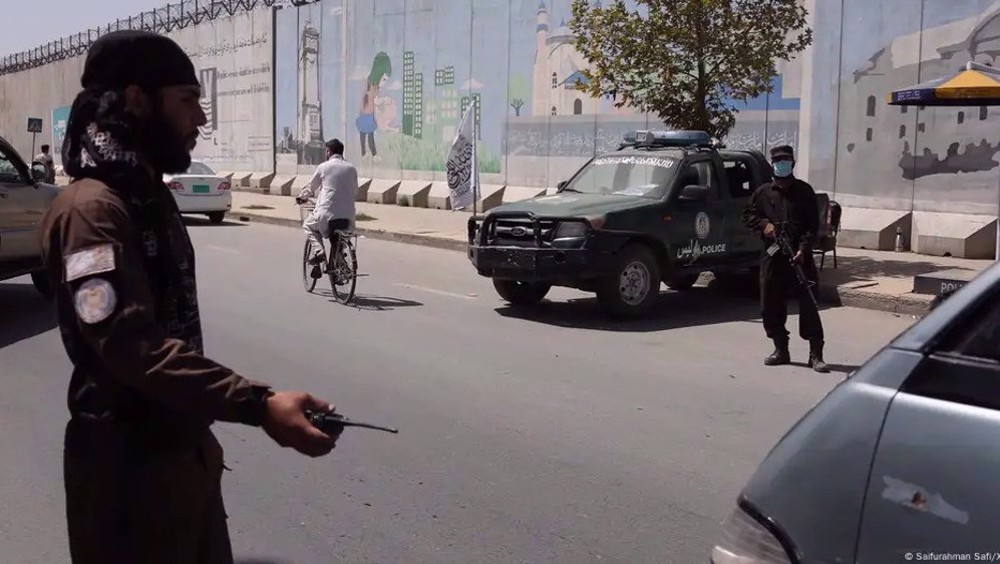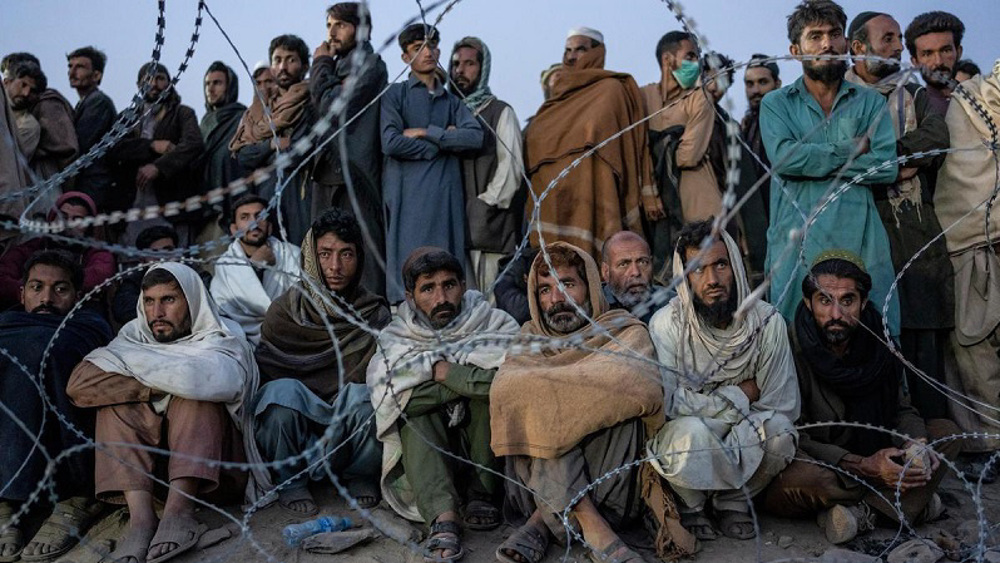‘Amnesty possible for some Daesh members in Afghanistan’
An Afghan official says members of the Daesh Takfiri terrorist group – who surrendered to security forces in the northern province of Jawzjan this week – may be granted amnesty despite atrocities they perpetrated against civilians.
The announcement was made on Saturday after more than 150 Daesh terrorists, including two senior commanders, from their strongholds in Darzab and Qush Tepa, gave themselves up following their defeat in a fight with the Taliban.
"There is an amnesty for the Daesh group that surrendered in Darzab district," said Mohammad Reza Ghafouri, spokesman for the Jawzjan provincial governor.
"The group will not be presented to legal and judicial authorities because they are taking part in the peace process," he said, adding that people with complaints about individual members of the terrorist outfit were free to bring their case to the courts.
"Any adversary of the government that joins the peace process has to be given amnesty because if they are taken before the judges, other adversaries who have reached an agreement with the government will go cold on it," Ghafouri noted.
Thousands of civilians have fled the area in Darzab and Qush Tepa districts, with many giving detailed accounts that the Takfiri group had taken away women and young girls from their families, raped and in some cases murdered them.
Afghan Defense Ministry spokesman Mohammad Radmanish also said the military had done its duty and it was now for the government to decide the next step.
"As defenders of our people and country, our job is to fight our enemy. Now they have surrendered...our job is done," he said.
Jawzjan security commander General Faqir Mohammad Jawzjani, however, expressed skepticism about any reconciliation with the terrorist group, saying that any Daesh member who had committed crimes against humanity would face justice.
"I am concerned and afraid that after surrendering, these people will commit more crimes because they are completely untrustworthy," he said.
Taliban launched an offensive several weeks ago in Jawzjan against Daesh.
Taliban’s five-year rule in Afghanistan came to an end in 2011 when the US and allies invaded the Asian country as part of Washington’s so-called war on terror. The offensive removed the Taliban from power, but ever since, the group has been involved in widespread militancy, killing thousands of civilians as well as Afghan and American forces. Seventeen years on, the US is now seeking peace talks with the militant group.
The New York Times reported last month that President Donald Trump’s administration had ordered diplomats to seek direct talks with the Taliban in a bid to jump-start peace negotiations.
Since late last year, Daesh, which has already lost all its urban strongholds in Syria and Iraq, has also taken advantage of the chaos in Afghanistan and established a foothold in the Asian country’s eastern and northern regions, launching brutal attacks against civilians and security forces alike.
Iran says it has enough deterrence without nukes
EU’s IRGC listing shows elite force effective in foiling Israeli plots: Yemen
VIDEO | Europe hostile move against IRGC
VIDEO | Zionists against the NHS
Trump compromised by Israel, Epstein files reveal
Iran, China, and Russia to hold joint naval exercise
Leader visits Imam Khomeini’s mausoleum ahead of 47th anniversary of Islamic Revolution
‘Our hands are on the trigger’: Iranian army chief warns Israel, US against mischief











 This makes it easy to access the Press TV website
This makes it easy to access the Press TV website